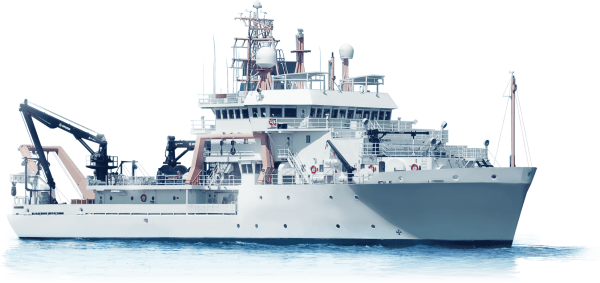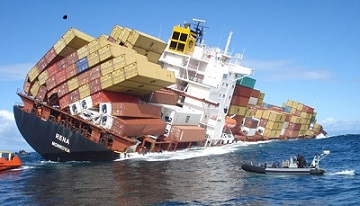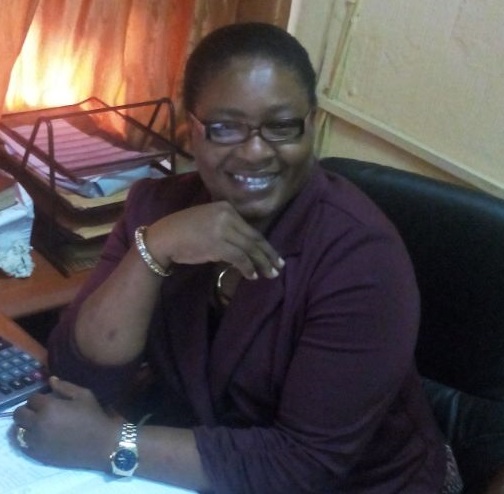How Insurance Can Shield The Risks In The Maritime Business
Mr. Adu Gbolahan is a staff of LASACO Assurance PLC, he has been involved in the maritime industry in the last five years as a member of the Nigerian Maritime Expo (NIMAREX), Planning Committee and he is also the Welfare Officer of Nigerian Ship-owners Association (NISA). In this edition of your favourite Shippers’ Guide page, he enlightens you more on what marine insurance stands for and how it benefits the industry.
What is the role of insurance in the maritime industry?
Insurance in the maritime industry plays the role of securing risks, take for instance, all the vessels that are being used to carry cargoes from one destination to another, need to be insured, insurance takes care of the risks of the ship owners and also of the cargoes, insurance is their risks manager.
What kind of insurance policy do LASACO give in the maritime industry?
We do both marine all risk, marine cargo and for marine professionals, we do what we call marine professional indemnity, this type is in case there is an accident, the client can be indemnified. Beyond that, we also do group life, for instance, there is an association called NAGAFF we did group life for their association members and so far we have paid more than one million naira to families of two of their late members.
How do you insure import? What kind of policy takes care of import to Nigeria?
When a good is about to be imported it goes through the banks and banks would not go ahead with an importation transaction without the Form M, and they will also require Marine Cargo Certificate (MCC) which secures goods from the point it is coming from. Take for instance, a cargo coming from China; the banks will not pay the beneficiary bank in China without seeing the MCC. With the Form M from the bank, we prepare the MCC which the banks will now use to process payments to the overseas banks. The insurance covers the importer from the point of departure to the point of arrival.
How much of export business do you do and how is it done?
We look at the packaging, we inspect the cargo to know exactly what is in it, we do not have control over where it is going, especially if it is by sea, it is very risky because we cannot control piracy and other things. So what we usually do is, we look at the risks, then we check if it has been done before by another insurance company, after which we check the number of claims issued, to know whether over time, if they have had to pay series of claims, then from the onset, we allow our clients to know our terms, because people sometimes do not understand. They feel that we do not take the time to fully explain to them.
For instance, the marine cargo clause A, is our comprehensive cover, that covers all risks, there is the clause B that offers limited cover, and the clause C which is the third party cover and the rates differ from one to the other. If you want a cheap rate automatically, what you will get is the clause C and most times it is the clause C that people opt for because they don’t want to pay, so they take the clause C just to get on with their transactions, but if there is an accident in transit, they cannot make any claim because their cargo is not insured. If the banks are financing the payment, they do not negotiate with importers, they deal directly with the insurance companies, now if an importer decides to undervalue his cargo in an attempt to cut costs and if there is a claim, we will pay him based on the amount he declared as value of his cargo.
How much oil and gas business does LASACO Assurance deal on?
We deal on oil and gas business a lot, in fact, it is our strength, we are now trying to penetrate the maritime sector and that is why I was moved to this Apapa branch since the last four years but I have been involved in maritime for five years now.
How is the insurance business in maritime oil and gas and how much risk has LASACO embarked on in this area?
It is picking up and there is more awareness, people are getting to appreciate insurance especially when we pay claims. We are like the backbones of the industry because we insure oil lifting vessels through co insurance with other insurance companies like CLO Insurance Limited among others. We have to co-insure with them because of the magnitude of the risk, which is too much for one company to carry. So, two or more insurance companies can come together to undertake the risk management of a large client.
How much risk can insurance take in capsized vessels, cargo or hijacked vessels?
There are some risks that do not cover hijack, so the policy owner needs to go through his policy to know what risk he is being covered and what is not, and if he wants another risk cover that is not included in his policy, he will have to pay additional premium. Like the clause A which covers all risks, is the marine cargo policy but it does not cover war. War policy is a different policy on its own. That is why people whose cargos are coming from war prone areas are charged additional premium.
There is usually an insurance content in ship purchase, what is its depth?
Until you acquire the vessel, there is nothing to cover, we call it insurable interest, for instance, we cannot insure car when you have not bought it, it is until the car is paid for and becomes your own that we can now insure it for you, so also it is until a vessel is bought and fully paid for that it is insurable.
How much role does insurance play in seizure of goods mid-sea or by Customs in Nigeria?
What we usually do is, we inform our surveyor to give us a report, he liaises on our behalf with the Customs Command that is involved and he request for permission to investigate, after the investigation, he reports back to us and based on the details of his findings, we take a decision on whether to pay or not to pay. If it is a case of fraud and the investigation confirms it, we will inform our client that we cannot pay the claim because our policy is strict and we have regulatory bodies that are watching to make sure we adhere to laid down rules and regulations.
Does insurance pay shippers for losing their cargo to Customs?
I advise importers to take good insurance cover because if there business, it comes with a lot of uncertainties and if those uncertainties are covered, they have peace of mind, they are just a phone call away from getting their money back and they can easily bounce back in business. Some people view insurance as expensive but premiums are determined by the cover, for instance ,if we want to give the clause A cover for a rice cargo, we consider that if this cargo falls into the sea can anything be recovered? So we can charge as much as 3-4% of the total as premium. When compared to a cargo of rubber which cannot be damaged by water the rate can come down for as low as 3% and can be lowered based on negotiations.














